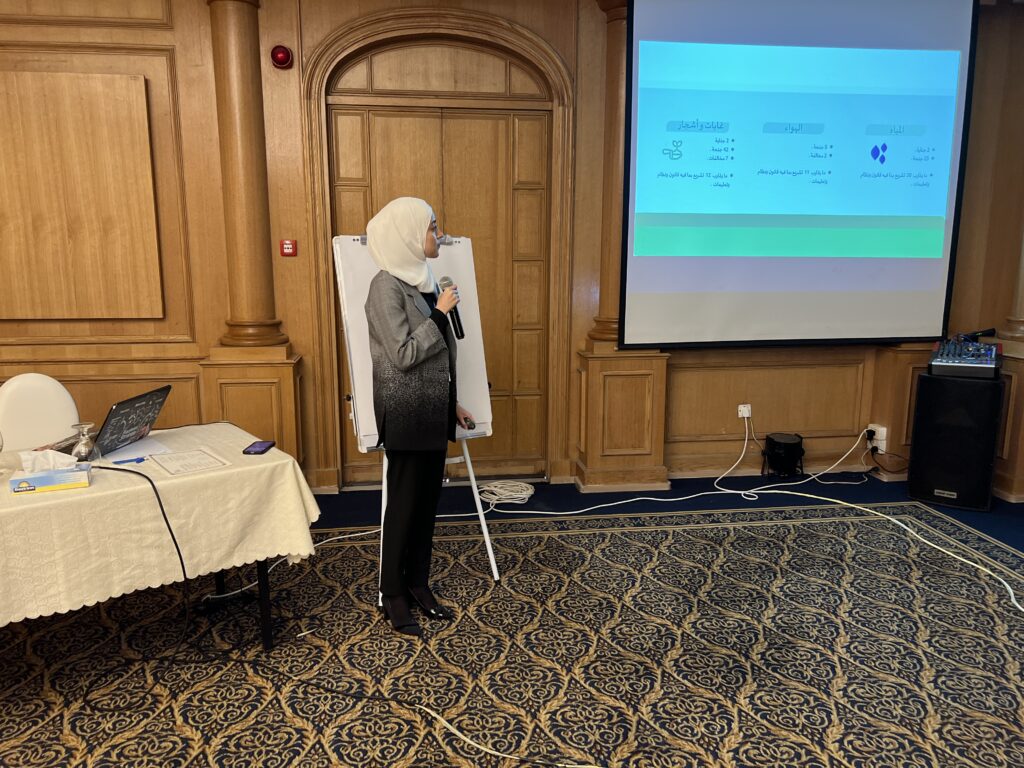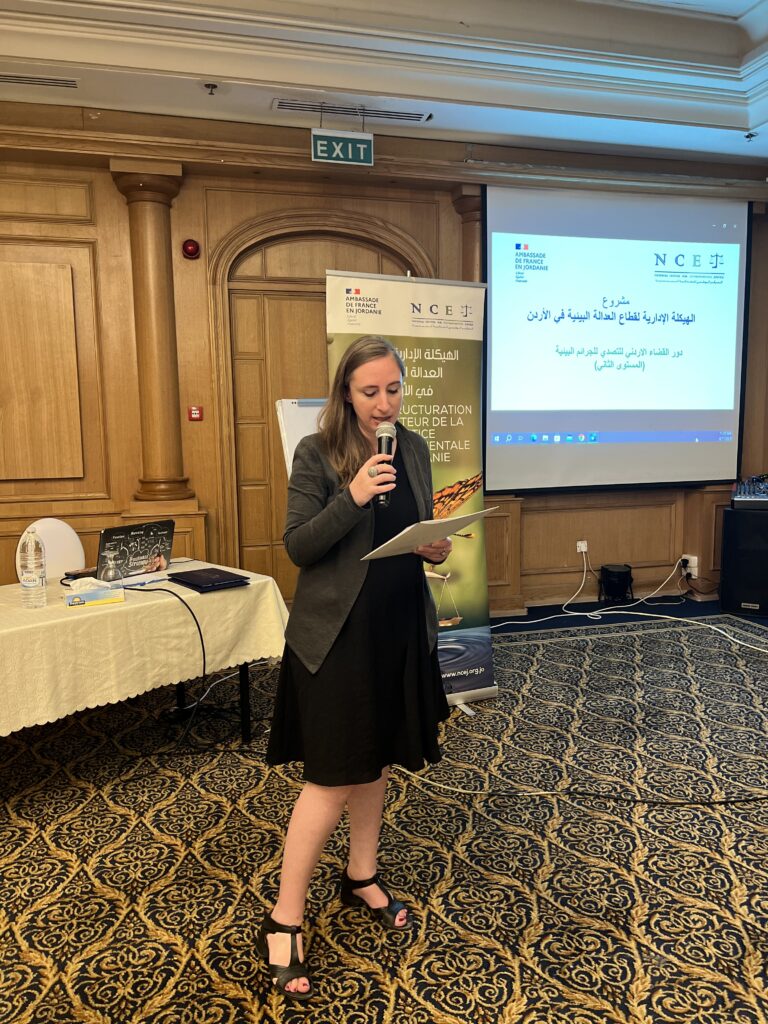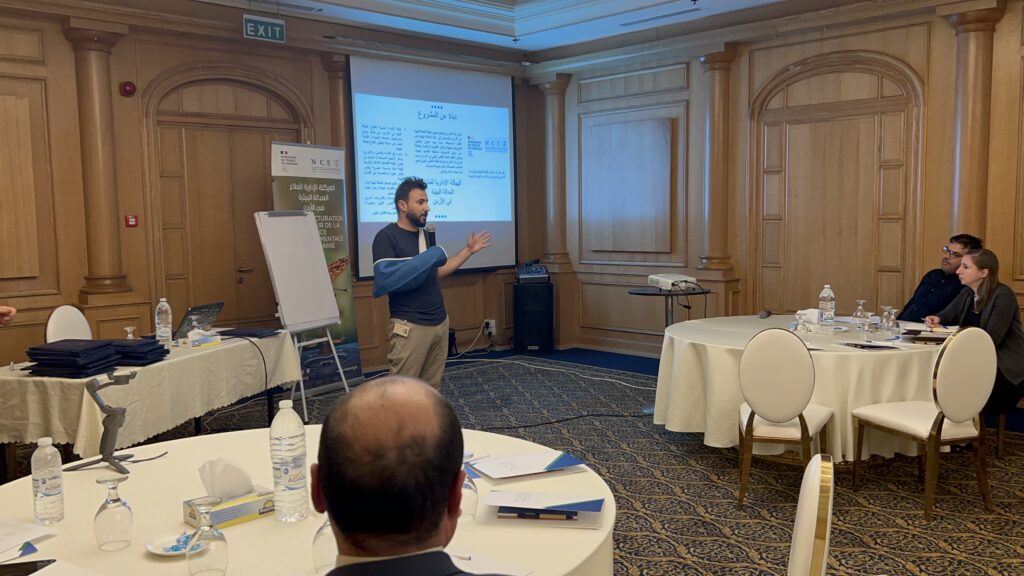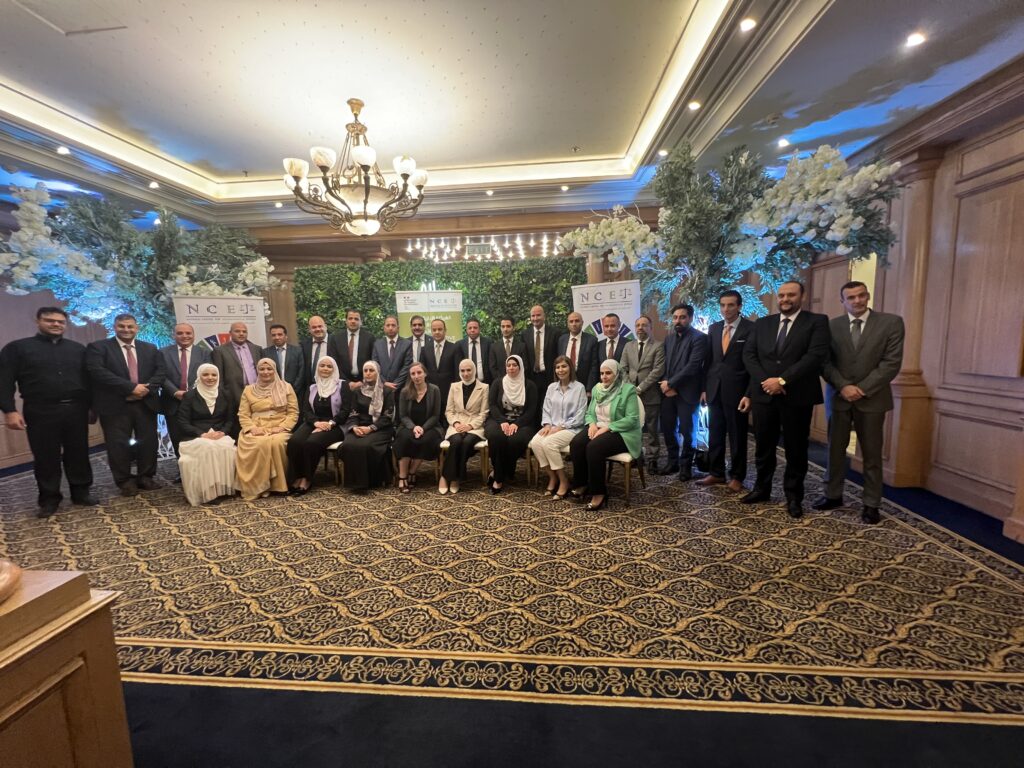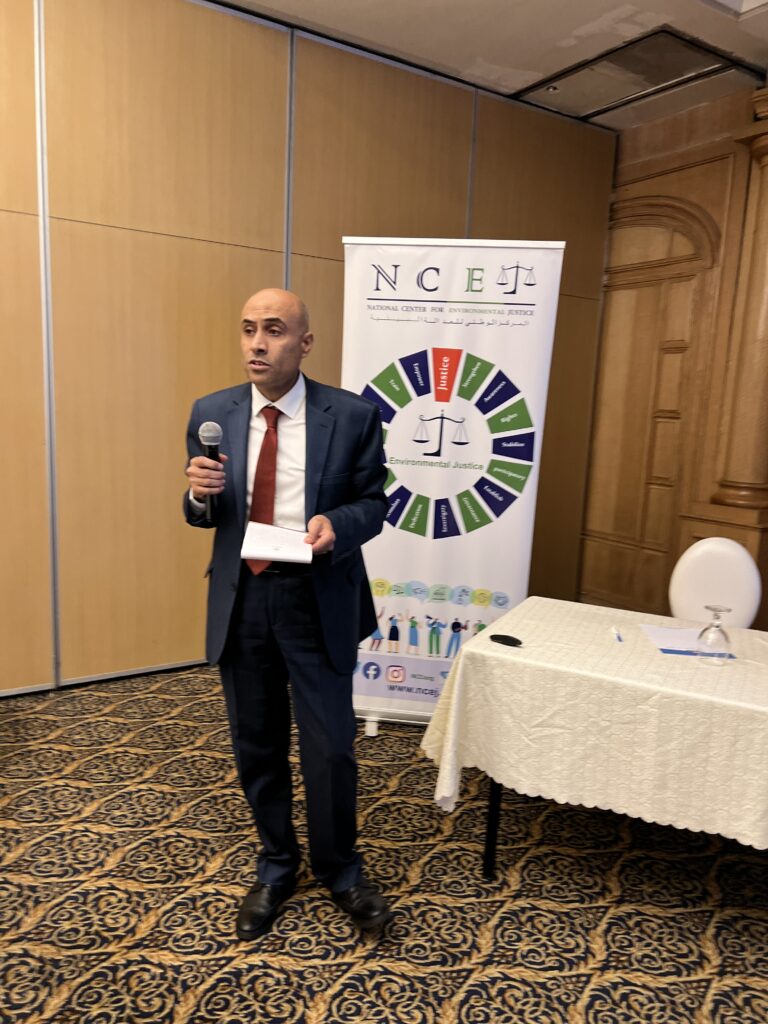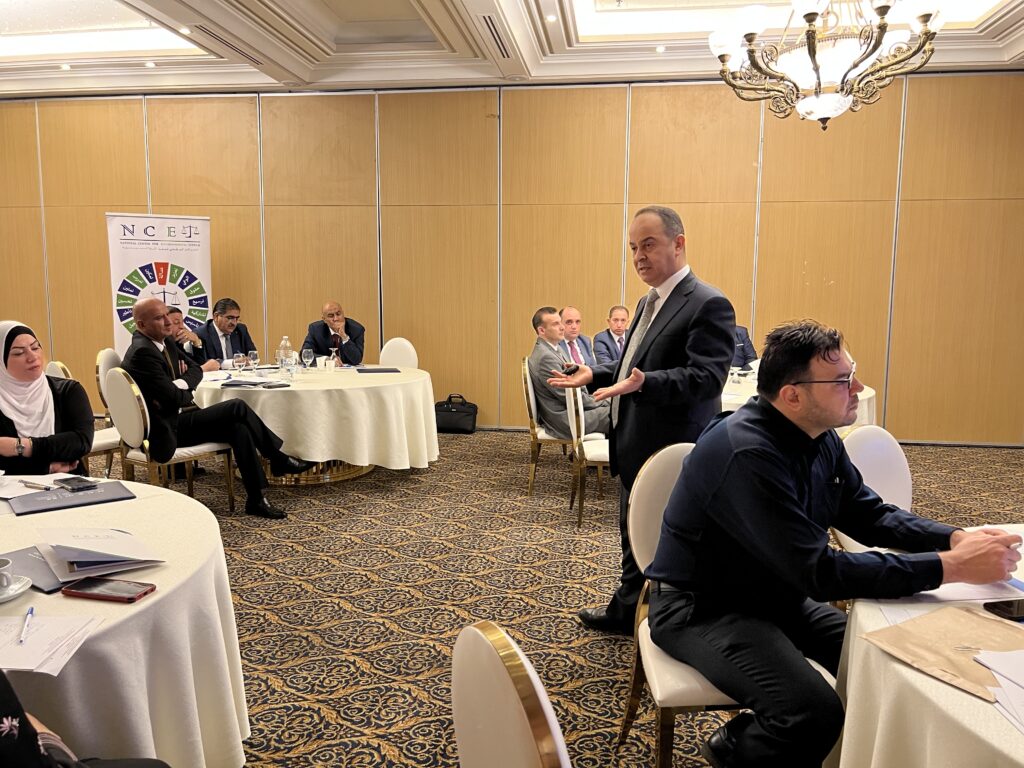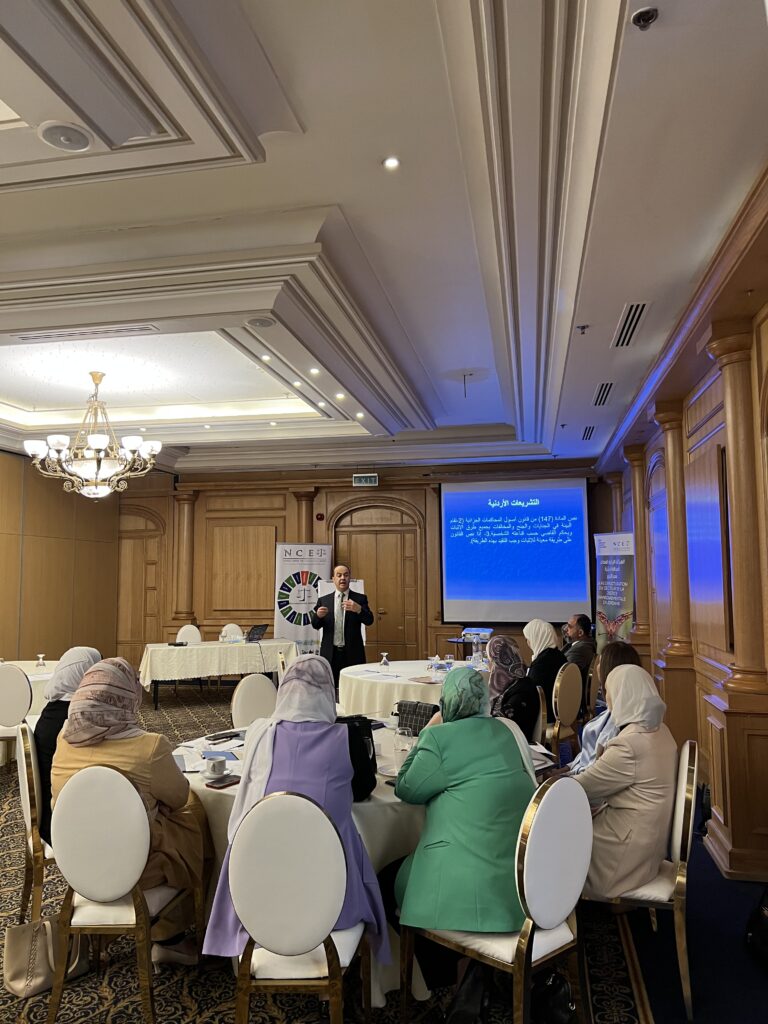With the support of the French Embassy and the implementation by the National Center for Environmental Justice (NCEJ), today marked the conclusion of the final phase of the project ‘Administrative Restructuring of the Environmental Justice Sector in Jordan,’ which was launched in mid-2022. The project aimed to enhance the rule of environmental law in Jordan by supporting the judiciary system (civil, criminal, and administrative) and other supporting entities to contribute to the development of an appropriate judicial environment. It focused on establishing an effective institutional framework, providing trained judicial personnel specializing in environmental issues, and improving the capacities of lawyers in environmental litigation at the courts.
The project was carried out in two phases. The first phase aimed to train and empower a group of lawyers on the procedures of environmental litigation for the Jordanian judiciary. One of its notable outcomes was an increase in the knowledge of practicing lawyers regarding the characteristics and features of environmental lawsuits and the associated litigation procedures. They gained a deep understanding of the environmental protection legislation in Jordan and how to effectively utilize it in litigation at the Jordanian courts through practical training sessions.
As for the second phase, it aimed to solidify the foundations of litigation in environmental cases and the applied practices of judges and prosecutors in dealing with environmental issues. This phase included shedding light on the role of the Jordanian judiciary in addressing environmental crimes through discussing and analyzing the legislative frameworks that intend to regulate environmental protection in Jordan. It also focused on the unique characteristics of civil liability for environmental damages and the difficulties associated with proving such damages. Additionally, it clarified the rules of criminal evidence in environmental lawsuits through specialized training sessions for a group of judges and prosecutors, which included practical and analytical exercises.
The most notable results and recommendations of this phase emphasized the need to develop a procedural guide for the work of judicial officers and a guiding manual for judges to facilitate litigation procedures in environmental cases. Additionally, it highlighted the importance of intensifying official and non-official efforts to combat environmental crimes by extending this experience to other governorates of the kingdom.
At the conclusion of the project, Dr. Mohammed Eyadat, the President of the National Center for Environmental Justice (NCEJ), expressed his sincere gratitude and appreciation to the French Embassy in Jordan for their support of this project, which is considered one of the impactful projects in protecting the environment in Jordan. The project highlighted the role of litigation in environmental protection and its significance in establishing environmental rights. Particularly, it is considered as one of the most important aspects of effective protection is the establishment of appropriate legislation and its enforcement by all stakeholders involved in environmental cases, including judges, public prosecutors, and lawyers. Dr. Eyadat also expressed his thanks and appreciation to the Judicial Council, which played an active role in the success of this project in highlighting the role of the Jordanian judiciary in addressing environmental issues.
In turn, Mrs. Emilie Desormiere, the Judicial and Legal Attaché at the French Embassy, presented certificates of appreciation and participation to the project participants. Besides, it is worth noting that the National Center for Environmental Justice (NCEJ) will publish all reports, results, and recommendations of the project on its website for those who are interested in accessing them.
